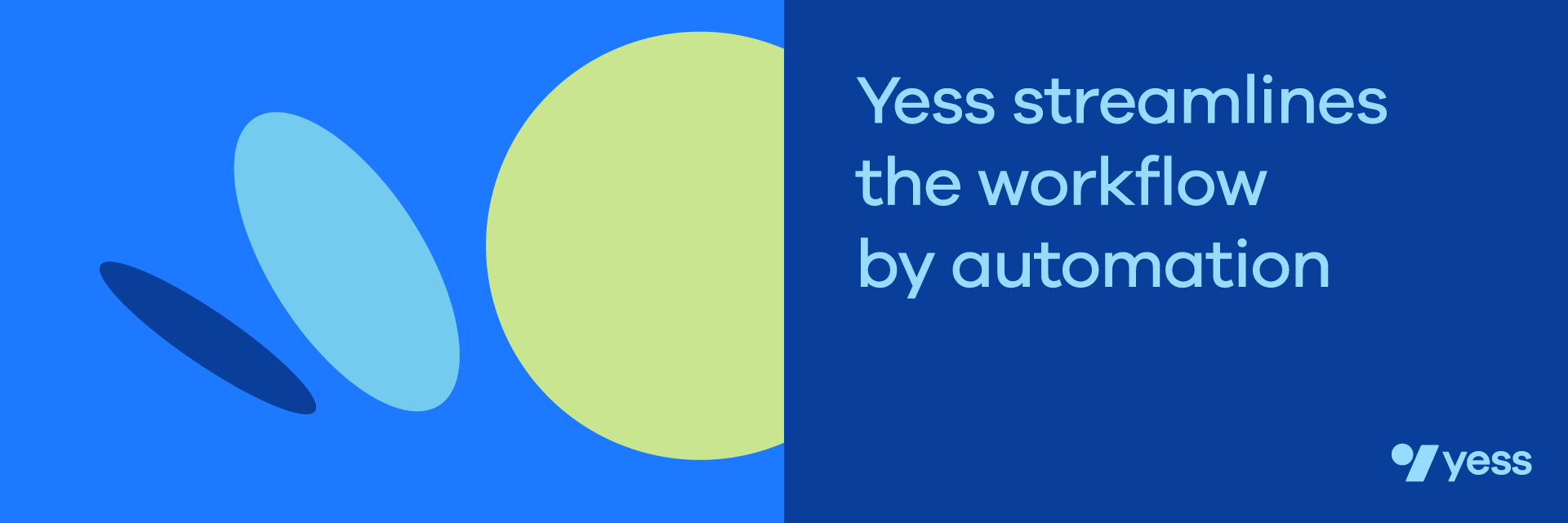Strategies, Tips, and Interview Questions: Mastering the Art of Handling Repetitive Tasks at Work to Perform Like a Pro
In the fast-paced world of agency administration, repetitive tasks can either be a time-sink or a streamlined process. This article dives into how you can turn the mundane into the manageable, and why you should care. We'll cover everything from interview questions you might face about handling repetitive tasks to automation tips that can save you hours every week. Plus, we'll explore how Yess can be your secret weapon for tackling repetitive tasks efficiently.
1. Why Are Repetitive Tasks a Big Deal in Agency Administration?
The Hidden Costs of Repetitive Tasks
Repetitive tasks can be a significant drain on productivity in the workplace. When you're stuck performing repetitive tasks, it's easy to become bored and lose focus, which can lead to mistakes and decreased efficiency. Managers should be aware of the hidden costs that repetitive tasks can impose on their teams and look for ways to streamline these duties. Streamlining repetitive tasks can help improve efficiency and free up time for more creative or complex duties. Employers should aim to minimize the impact of repetitive tasks on their teams to maintain a positive work environment.
The Impact on Employee Satisfaction
Repetitive tasks can also impact employee satisfaction and contribute to burnout. When employees are bogged down with tedious, repetitive tasks, they have less time for creative or rewarding work. This can lead to a decrease in job satisfaction and even higher turnover rates. Employers should aim to minimize the impact of repetitive tasks on their teams to maintain a positive work environment. A positive attitude towards repetitive tasks can make the workplace more attractive and help prevent employee burnout.
2. Common Interview Questions About Handling Repetitive Tasks
"How Do You Handle Repetitive Tasks?"
This common interview question aims to gauge your attitude and strategy towards repetitive tasks. When answering this question, focus on how you organize and prioritize tasks to complete them efficiently. Mention any tools like planners or software that help you manage your workload and improve efficiency. The interviewer wants to make sure they're hiring a candidate who can not only complete tasks but also find ways to make processes more efficient.
"Can You Give an Example of a Repetitive Task You've Improved?"
In your answer, provide a specific example from your last job where you streamlined a repetitive task, perhaps through automation or better time management. Employers are always looking for candidates who can bring a fresh perspective to old routines and help improve the overall productivity of the team.
3. Tips to Organize Repetitive Tasks Effectively
Using Checklists to Stay on Track
A checklist can be a simple yet effective tool to handle repetitive tasks. It helps you identify what needs to be done and ensures that nothing is missed. Checklists can also be shared with team members to boost collective productivity. A well-organized checklist can be your best friend when it comes to repetitive tasks. It helps you stay focused, ensures you don't miss anything, and can be a great tool for boosting team productivity.
Setting Deadlines and Priorities
Deadlines and priorities are essential in any workplace, but they're especially crucial when you have a high volume of repetitive tasks. Use a calendar or timer to keep track of deadlines and prioritize tasks to ensure they get done on time. Effective time management is crucial for completing repetitive tasks efficiently. Techniques like the Pomodoro Technique, where you work for 25 minutes and then take a short break, can help prevent fatigue and keep you alert.
4. Automate, Don't Aggravate: Streamlining Repetitive Tasks
Tools for Automation
Software tools can be a lifesaver when it comes to repetitive tasks. Automation can help improve efficiency and free up time for more creative or complex duties. Always try to implement automation where possible to streamline your repetitive tasks. Yess, for example, offers features that allow you to automate document and email templates, helping you save time and ensure that your repetitive tasks are completed to high standards.
When to Automate and When Not To
While automation can be a boon, it's not always the right answer. Some tasks require human interaction or high standards of quality that automation can't yet achieve. Know when to automate and when to execute tasks manually to maintain a balanced workload. Employers play a significant role in helping their teams meet deadlines for repetitive tasks. Providing the right tools and creating a supportive work environment can go a long way in ensuring tasks are completed on time.
5. How Yess Can Help You Handle Repetitive Tasks
Automating Document and Email Templates
Yess can be a game-changer for agencies looking to handle repetitive tasks more efficiently. With features that allow you to automate document and email templates, Yess helps you save time and ensures that your repetitive tasks are completed to high standards. The automation features in Yess are designed to help you streamline repetitive tasks, so you can focus on more important aspects of your job.
Streamlining Meeting Scheduling and Invoicing
Another way Yess can help is by streamlining meeting scheduling and invoicing. These are often repetitive tasks that can take up a lot of time. Yess allows you to automate these processes, helping you focus on more important aspects of your job. By automating these repetitive tasks, Yess helps you complete work more efficiently, allowing you to prioritize other important duties.

6. How to Ace Repetitive Tasks: Expert Tips
The Psychology of Repetition
Understanding the psychology behind repetition can help you develop a mindset that makes repetitive tasks less tedious. Small rewards after task completion can boost your morale and make your work more enjoyable. The psychology of repetition can be a powerful tool to help you stay focused and maintain a positive attitude, even when the work is tedious.
Expert Opinions and Case Studies
Experts often have unique tips and strategies for handling repetitive tasks. Case studies can provide real-world examples of how to handle repetitive tasks efficiently, giving you a competitive edge. Learning from experts can give you new perspectives on how to handle repetitive tasks, allowing you to complete them more efficiently and effectively.
7. Your Checklist to Handle Repetitive Tasks Like a Pro
Your Go-To List for Daily, Weekly, and Monthly Tasks
A well-organized checklist can be your best friend when it comes to repetitive tasks. It helps you stay focused, ensures you don't miss anything, and can be a great tool for boosting team productivity. Regularly review and revise your checklist to ensure it remains an effective tool for handling your repetitive tasks.
Review and Revise: Keeping Your Checklist Updated
A checklist is only as good as its most recent update. Regularly review and revise your checklist to ensure it remains an effective tool for handling your repetitive tasks. Keeping your checklist updated can help you and your team stay on top of your duties, ensuring that everything gets done on time and to high standards.
Key takeaway
- Streamlining repetitive tasks through automation and effective time management can significantly boost productivity and employee satisfaction in the workplace.
- Yess can be a game-changer for agencies, offering features that automate document and email templates, as well as streamlining meeting scheduling and invoicing, making repetitive tasks more manageable.
- Utilizing checklists and understanding the psychology of repetition can not only help you complete repetitive tasks efficiently but also maintain a positive work environment and attitude.





